Deepwater Rice - the Bangladesh Rice Research Institute (BRRI) and the Rajbari field site |
Main entrance to BRRI |
The Mausoleum at Rajbari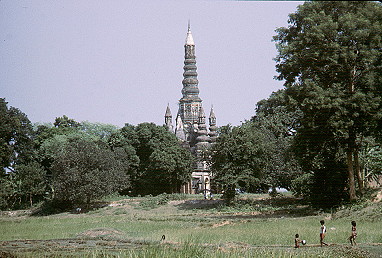 |
Project portakabin ofiices in background - foreground is Amzad Hussien (laboratory attendant) with dwr plants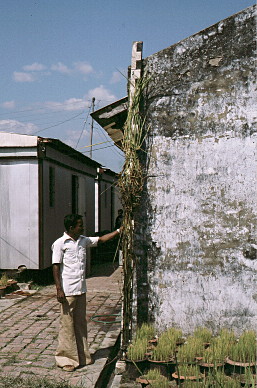 |
another view, with caged room for specimen plants etc.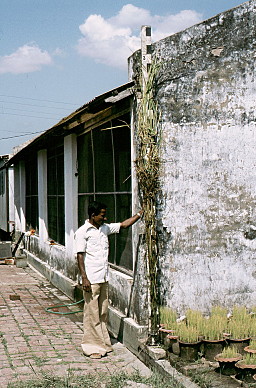 |
Deepwater rice research tanks - water reservoir in foreground and a BRRI-ODA tank behind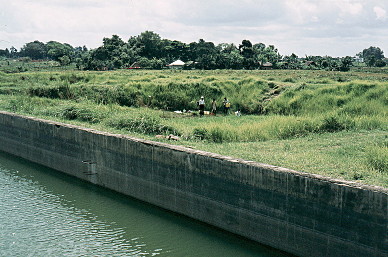 |
Plant breeding tank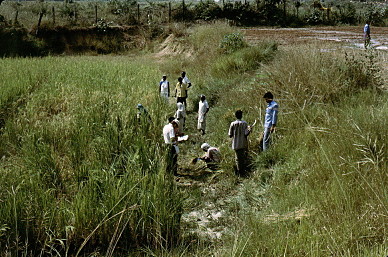 |
BRRI-ODA tank with spraying in progress - July 1981 |
BRRI-ODA tank with spraying in progress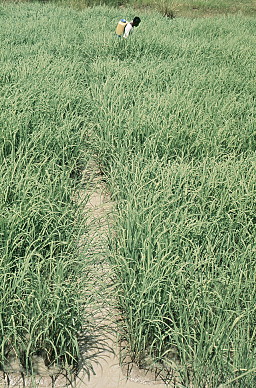 |
BRRI-ODA ufra research tank 1 - note small "caged" plots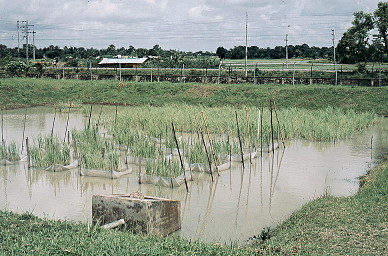 |
BRRI-ODA ufra research tank 2 - note settling ponds to retain infected material. BRRI housing and other facilities in background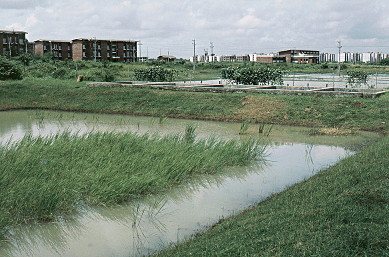 |
Seedbed used by the project to produce DWR seedlings for transplantation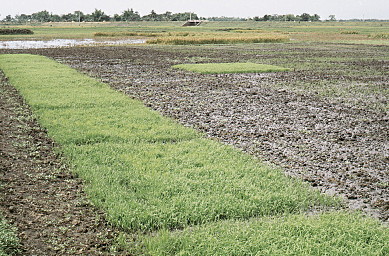 |
Much effort goes into the HYV, high yield varieties, for transplanted aman and boro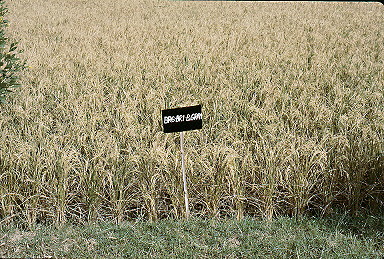 |
Rajbari, JoydepurThe Rajbari site, just on the east of the main railway at Joydebpur, was used for multifactorial and varietal trials, plus other BRRI DWR studies. Flooding here is from local rainwater accumulation and not directly from one of the major rivers. | |
Peak flood at Rajbari - site - river full on 19 June but little water in the site; 22 June flood in fields; 28 June had reached road but still at that level on 3 August (ca 80 cm of water)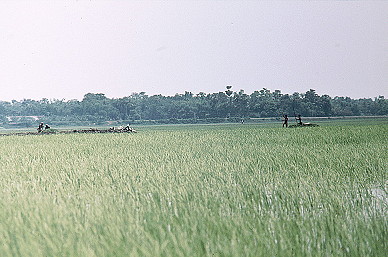 |
response to flood decline at Rajbari - kneeing of the DWR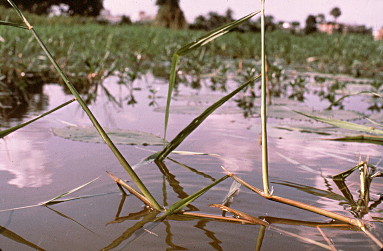 |
End of flood at Rajbari - note the kneeing of the DWR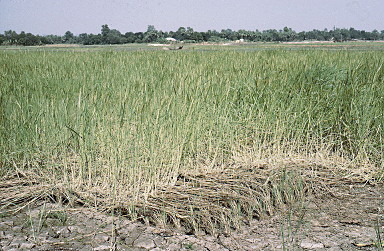 |
|
| ©2000 - Brian Taylor CBiol FIBiol
FRES 11, Grazingfield, Wilford, Nottingham, NG11 7FN, U.K. Visiting Academic in the Department of Life Science, University of Nottingham |
href="\dwr\sites\brri\brri.htm"